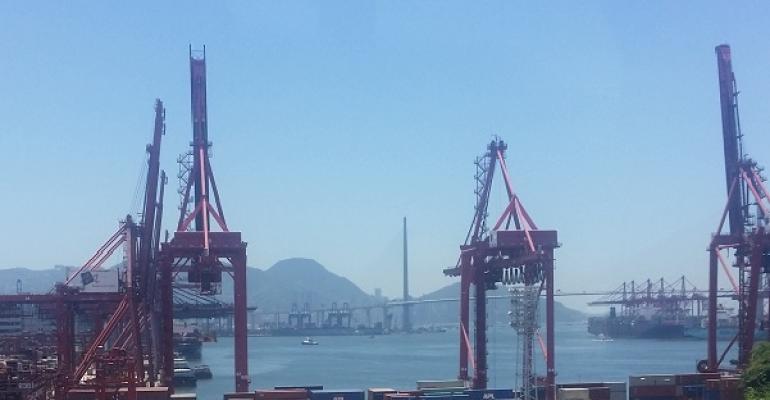A plan to fully implement Electronic Release Order (eRO) for import containers was launched in January this year as one of the key steps on HKCTOA’s digitalization roadmap.
HKCTOA members plan to fully implement eRO for import containers before December 2019 and phase out the paper handling process by 2020, the association said in a press reease. Over 1,000 containers have been released by eRO securely from the trial since October 2016. Eliminating the current paper-dependent processes can shorten processing time from three days to one day and achieve enhanced efficiency with proven security features, HKCTOA noted.
Members of HKCTOA have engaged OnePort to jointly collect industry views and requirements for eRO implementation. Reducing the need to develop individual eRO systems, OnePort has enhanced its platform to provide fast, convenient and secured online exchange of import documents and instructions for paperless release of laden containers at container terminals. The eRO system enables the consignee to prepare electronic Letter of Indemnity (eLOI), receive eRO and forward the eRO to the trucker via the same platform. The trucker can then present the eRO QR code at the container terminals and collect the container.
Hong Kong is proving to be an burgeoning test bed for digital technologies in the logistics space. Blockchain technology-based digital logistics platform OpenPort also announced the launch in Hong Kong of the Open Enterprise Logistics (OEL) Foundation, a non-profit organization open to enterprises in the supply chain and logistics industry.
HKCTOA chairman Jessie Chung said: “Digitalization is the key to the future growth of the shipping and logistics industry, and HKCTOA spares no efforts in promoting this important aspect of the port industry. In addition, the industry has been facing a number of challenges in recent years. While container terminal operators have been working hard to maintain the competitiveness of the Hong Kong Port, we seek the continuous support from the HKSAR Government in taking the necessary steps to facilitate the future development of the Port of Hong Kong in order to enhance the position of Hong Kong as an international shipping centre and transshipment hub.”
Secretary for Transport and Housing Frank Chan said: “International shipping is dynamic and ever-changing. To survive the test of time, we have to constantly equip ourselves to move ahead and stay competitive. One of the key developments besetting the container shipping industry is the use of digitalization and automation technology, to improve not only the efficiency of the port, but also the working environment and occupational safety. Major ports in the world are now becoming automated and Hong Kong is no exception.”
Members of HKCTOA include Asia Container Terminals, COSCO-HIT Terminals, Goodman DP World, Hongkong International Terminals, and Modern Terminals.
Copyright © 2024. All rights reserved. Seatrade, a trading name of Informa Markets (UK) Limited. Add Seatrade Maritime News to your Google News feed.


